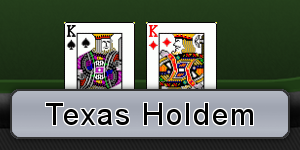 Deciding how to play on the turn and figuring out whether or not you should bet can be pretty tricky. In No Limit Texas Holdem, the turn is a crucial point in the hand where you decide how much you like your hand and it’s quite often where players make the most mistakes and lose the most amount of money.
Deciding how to play on the turn and figuring out whether or not you should bet can be pretty tricky. In No Limit Texas Holdem, the turn is a crucial point in the hand where you decide how much you like your hand and it’s quite often where players make the most mistakes and lose the most amount of money.
You have to be aware that the vast majority of the time the player who has already made their hand on or before the turn will beat the player still waiting for that last card to complete a hand. That is assuming the hand goes to showdown.
If a fishy player has any kind of made hand on the flop you can be sure they will be sticking around so a bet on the turn when you have nothing would make little sense. Contrary to that, a tight player will not like facing a bet on the turn with any hands besides strong holdings, so a double barrel will more then likely get them off the hand.
Like everything in poker, you need to know your opponent, and the likelihood they will fold if you bet the times you are thinking about trying a bluff. A big leak in many low stakes players post flop games is either shutting down too much on the turn or being too aggressive. You need to find the right balance otherwise it will really have an affect on your win rate.
If your opponent raises on the turn here you should realise you are beaten. The majority of players are not raising with anything less than two pair. Generally if you only have the top pair after the turn and you’re facing a raise, you should fold against the vast majority of opponents.
It is important to utilize the bet/fold play on the turn even though there is the potential for getting raised. If you suspect that you currently have the best hand you want to make it expensive for others to chase their flush / straight or even get them to call with worse made hands.
Don’t call bets after the turn with only over cards or weakish draws. When you were trying to take away the pot on the turn but it didn’t work out as you had planned because your opponent fired a second barrel after raising pre-flop, then you can just get away from the hand. There is no need to make elaborate plays against a strong range when the action suggests your opponent probably has a good hand.
As with the other rounds, remember whenever you call a bet, consider the player making the bet. What position are they in and narrow down their range of hands. Their range after the turn is going to be different to the range of potential hands they could have had on the flop. Out and out bluffing gets less likely in the later betting rounds.




